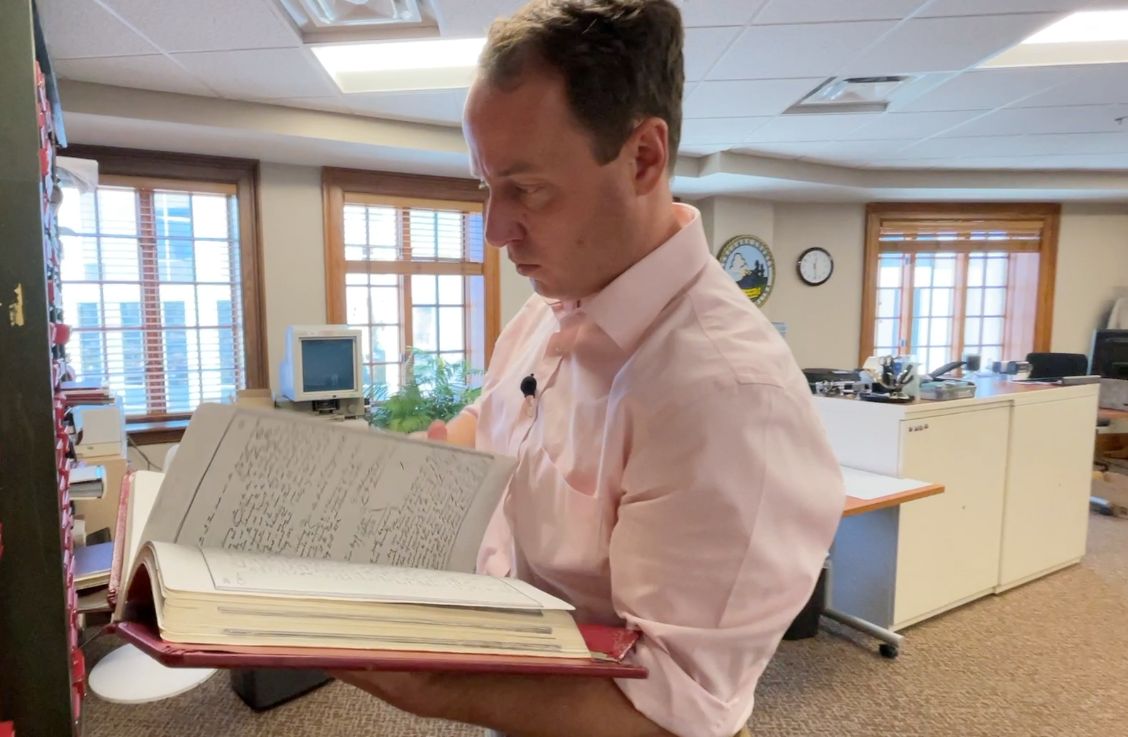ASHEVILLE, N.C. — A statewide database is now publicly listing the names of 50,000 enslaved people that lived in North Carolina.
The Slave Deeds Project started a statewide database with over 50,000 names of slaves
The statewide database includes those from Buncombe County and 12 other counties
The project was funded by a National Archives grant
The Slave Deeds Project was inspired by the Buncombe County Register of Deeds with the help of partner UNC Greensboro and the North Carolina Office of Archives and History.
Buncombe County Register of Deeds Drew Reisinger knows uncovering dark history is no task for the weak-hearted. He does it because he knows it's the right thing to do.

"These stories are important for people to understand who their ancestors were," Reisinger said.
Reisinger grew up in a small Florida community. He visited western North Carolina as a kid because his grandparents lived here.
"I went to a private Christian school, and I was really surprised when I went off to college at Appalachian State, what I hadn't learned and things that were kept from us," Reisinger said. "Probably an effort to like shield us or keep us safe, but I realized that they didn't let us make those decisions for ourselves as to what our history was.”
When he stepped into the role of Register of Deeds a decade ago, Reisinger started learning more about Asheville’s dark history of slavery. At first, he didn't realize his office had records of slavery until a friend of his at UNC Greensboro told him if he had property records then he had records of slavery because slaves were considered property.
"That was like this moment that I won't ever forget, where I realized we had this huge responsibility to make these records more available than they currently were," Resiginer said."That was like this moment that I won't ever forget, where I realized we had this huge responsibility to make these records more available than they currently were," Resiginer said.
In one property deed book alone, he found hundreds of bills of sale for slaves. So, Reisinger set out on a mission — the Slave Deeds Project. He knew he needed to make these overlooked records available to everyone so he partnered with UNC Greensboro.
"We worked together with the university to start digitizing these records and finding all bills of sale that were recorded in Buncombe County's history, and we became the first in the country to make these digitized records of slavery available freely for everyone," Reisinger said.
They were able to secure a grant from the National Archives for $294,000 and since then have been able to add 12 more counties full databases of slave records to a digital library. Last month, the team announced they'd uncovered 50,000 names of slaves. It starts here in North Carolina, but Reisinger wants to prove this database should be a tool used across the nation.
"For everyone who was enslaved for their names to be finally uncovered," Reisigner said. "And for their families to know who they were and what their lives might’ve looked like.”
He knows how important it was to learn about his own ancestry, and Reisinger feels everyone should be given the same opportunity.
"The Register of Deeds office shares all this information publicly about white people's ancestry, but we did a terrible job of keeping African-American records," Reisinger said. "This is one thing we can do to help, not level the playing field, but at least give them access to their family's records.”
Anyone can search the thousands of slave deeds and their images via the Digital Library on American Slavery.





